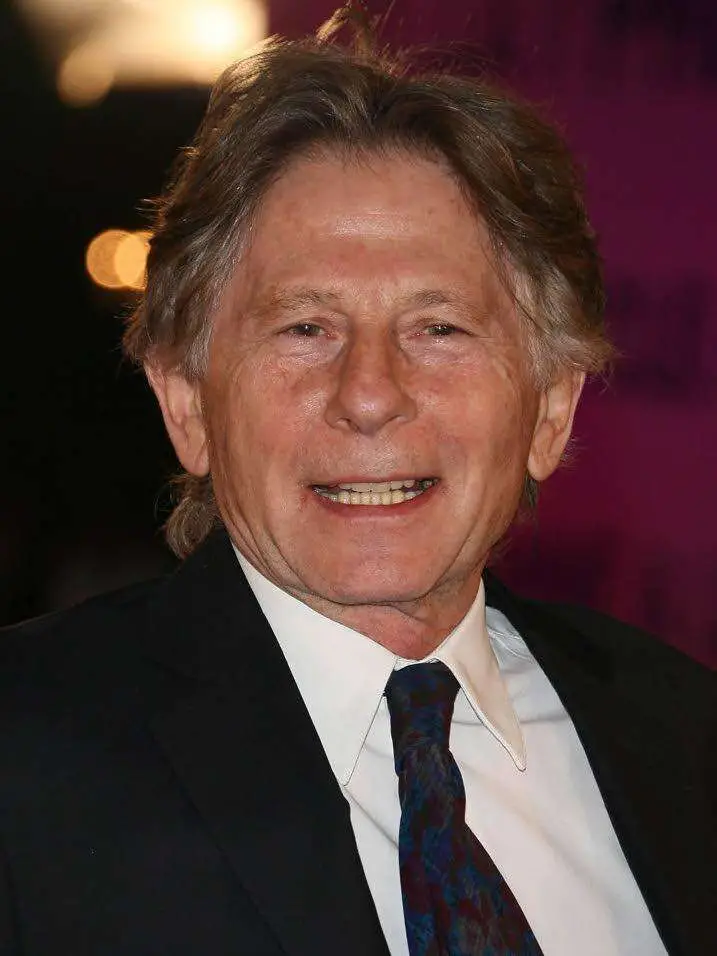
This Day in History — August 18
Today is the 230th day of 2022. There are 135 days left in the year.
TODAY’S HIGHLIGHT
1964: South Africa is banned from participating in the Olympic Games in Tokyo for refusing to renounce its apartheid policies.
OTHER EVENTS
1227: Genghis Khan — a warrior and ruler of genius who, starting from obscure and insignificant beginnings, brought all the nomadic tribes of Mongolia into a rigidly disciplined military state — dies at age 65.
1477: Mary of Burgundy marries Archduke Maximilian, son of the Habsburg emperor Ferdinand III.
1527: French forces take Pavia and Genoa in Italy.
1572: Henry, prince of Béarn (later Henry IV of France), marries Margaret of Valois of the French royal house.
1612: Pendle Witch trial begins with 10 people accused of witchcraft in Lancaster, England, key witness nine-year-old boy.
1634: Urbain Grandier, accused and convicted of sorcery, is burned alive in Loudun, France.
1636: The Covenant of the Town of Dedham, Massachusetts is first signed.
1649: Turkey’s Sultan Ibrahim is deposed, assassinated and succeeded by Mohammed IV.
1735: The Evening Post begins publishing in Boston, Mass.
1786: The city of Reykjavík is designated the administrative capital of Iceland.
1812: Russian forces are defeated at Smolensk, which is occupied by the French under Napoleon.
1870: Western Australia is granted representative government.
1894: US Congress establishes the Bureau of Immigration.
1896: France annexes Madagascar. According to lore, more than 200 outlaws from regional gangs gathered at Brown’s Hole in the American West, where Butch Cassidy proposes to organise a Train Robbers’ Syndicate, which becomes familiarly known as the Wild Bunch.
1914: US President Woodrow Wilson proclaims American neutrality in World War I; Germany declares war on Russia.
1919: Anti-Cigarette League of America forms in Chicago, Illinois.
1920: The 19th Amendment to the US Constitution is ratified, giving women the right to vote.
1936: Federico García Lorca, who is widely considered the most important Spanish poet and playwright of the 20th century, is murdered (this day or August 19) by Nationalist forces during the Spanish Civil War.
1940: Battle of Britain: The air battle known as “The Hardest Day” occurs; Luftwaffe loses approximately 69 aircraft and the Royal Air Force loses 68 in one of the largest ever air battles
1958: Russian-born American author Vladimir Nabokov publishes his controversial novel Lolita, about a middle-aged man who becomes obsessed with a 12-year-old girl.
1968: More than 100 women and children are killed when a landslide sweeps two sightseeing buses into rain-swollen river on Honshu Island in Japan.
1969: The Woodstock Music and Art Fair — a legendary rock festival near Bethel, New York, that attracted some 400,000 fans — ends.
1976: Two US Army officers are hacked to death by axe-wielding North Korean border guards at the truce village of Panmunjom.
1977: US President Jimmy Carter’s Administration denounces as illegal Israel’s decision to establish three new Jewish settlements on the West Bank.
1986: Sudanese rebel group claims responsibility for shooting down Sudan Airways passenger plane in which all 60 people aboard were killed.
1989: In Colombia, leading presidential hopeful Luis Carlos Galan is assassinated outside Bogota, the Medellin drug cartel is suspected.

1992: American basketball player Larry Bird — who led the Boston Celtics to three NBA championships (1981, 1984, and 1986) and is considered one of the greatest pure shooters of all time — announces his retirement.
1990: The death toll from Sri Lanka’s civil war is put at 3,350 persons. At least 2,000 are civilians. A 13-month ceasefire in the seven-year-old conflict between the army and ethnic Tamil separatist rebels was broken in June.
1994: A powerful earthquake rips through north-west Algeria, collapsing thousands of dwellings and killing at least 150 people.
1995: Flash floods in the Marrakesh region of Morocco kill at least 73 people.
1996: In Pakistan, gunmen fire on a group of Shiite worshippers in central Punjab province, killing 18 people and injuring 100.
1997: Typhoon Winnie begins a sweep through Asia, killing 28 in Taiwan, then hits China, causing at least US$2.6 billion in damage and killing as many as 56 people.
1998: Congolese rebels send President Laurent Kabila’s troops fleeing as they advance to within 200 kilometres (125 miles) of the capital, now deprived of electricity.
2000: Indigenous people belonging to a tribe believed to have been decimated 80 years ago are located in the jungles of the Amazon state of Acre in Brazil.
2002: Heads of government from Germany, Austria, the Czech Republic and Slovakia convene in Berlin to organize financial relief efforts after more than a week of the worst flooding that led to at least 109 deaths across Europe, and caused an estimated US$20 billion in damage.
2003: Fourteen European tourists kidnapped in late February and March by Algerian Islamic militants are freed in northern Mali.
2004: Prisoners clash with knives, sticks and rocks at a San Salvador jail, leaving at least 23 dead and two dozen injured.
2005: Security forces kill Saleh Mohammed al-Aoofi, al-Qaeda’s top leader in Saudi Arabia, and five other Islamic extremists in gunbattles in Medina in the first major anti-terror sweep since King Abdullah took the throne earlier in the month.
2006: UN and maritime agencies promise help to Lebanon to clean up an oil slick caused by Israeli bombing during a month-long fighting. The spill has been described as Lebanon’s worst-ever environmental disaster.
2007: Two men hijack a Turkish passenger plane bound for Istanbul, holding several people hostage for more than four hours before surrendering, officials said.
2008: General Pervez Musharraf resigns as the president of Pakistan.
2009: A terminally ill Libyan man convicted in the 1988 Lockerbie airline bombing moves closer to being allowed to die outside of his Scottish prison cell when a court agrees he can drop an appeal against his conviction.
2010: The US Central Intelligence Agency opens a counter-proliferation centre to combat the spread of dangerous weapons and technology, a move that comes as Iran is on the verge of fuelling up a new nuclear power plant.
2011: Pope Benedict XVI warns at the start of a visit to crisis-hit Spain that Europe will not be able to emerge from its economic woes unless it realises that economic policy cannot be guided by a profit-driven mentality alone but must take into account ethical considerations that look out for the common good.
2012: The death toll of a suspected al-Qaeda attack on a Yemeni intelligence headquarters rises to 20, in the worst such attack in a year.
2013: UN experts arrive in Damascus to begin their investigation into the purported use of chemical weapons in Syria’s civil war.
2014: Iraqi and Kurdish forces recapture Iraq’s largest dam from Islamic militants following dozens of US air strikes in the extremists’ first major defeat since they swept across the country this summer.
TODAY’S BIRTHDAYS

Antonio Salieri, Italian composer (1750-1825); Meriweather Lewis, American explorer (1774-1809); Lord John Russell, English statesman (1792-1878); Shelley Winters, US actress (1920-2006); Roberto Clemente, Puerto Rican baseball player (1934-1972); Roman Polanski, Polish film director (1935- ); Robert Redford, US actor (1936- ); Edward Norton, American actor (1969- ); Patrick Swayze, American actor and dancer (1952-2009)
— AP
























